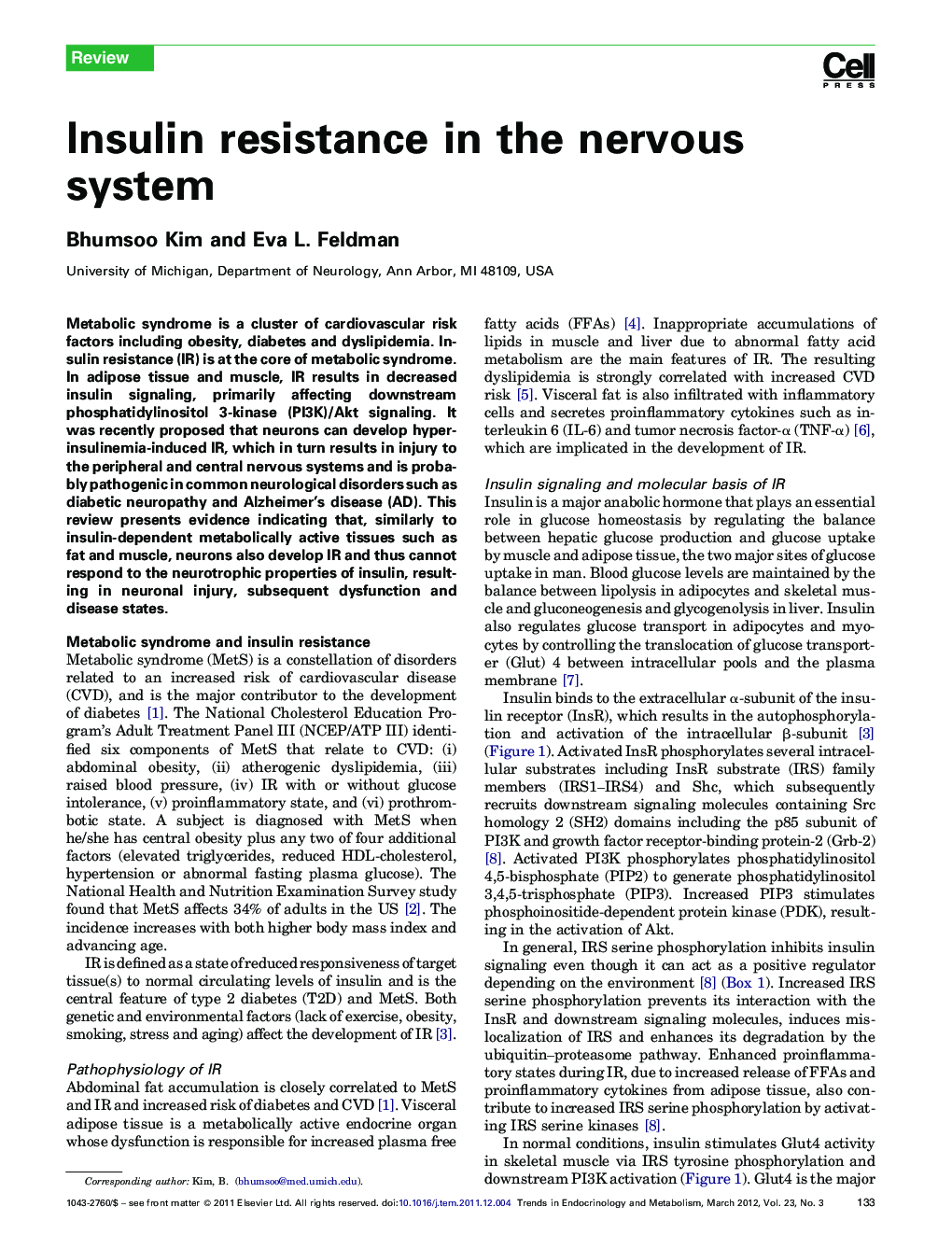| Article ID | Journal | Published Year | Pages | File Type |
|---|---|---|---|---|
| 2810911 | Trends in Endocrinology & Metabolism | 2012 | 9 Pages |
Metabolic syndrome is a cluster of cardiovascular risk factors including obesity, diabetes and dyslipidemia. Insulin resistance (IR) is at the core of metabolic syndrome. In adipose tissue and muscle, IR results in decreased insulin signaling, primarily affecting downstream phosphatidylinositol 3-kinase (PI3K)/Akt signaling. It was recently proposed that neurons can develop hyperinsulinemia-induced IR, which in turn results in injury to the peripheral and central nervous systems and is probably pathogenic in common neurological disorders such as diabetic neuropathy and Alzheimer's disease (AD). This review presents evidence indicating that, similarly to insulin-dependent metabolically active tissues such as fat and muscle, neurons also develop IR and thus cannot respond to the neurotrophic properties of insulin, resulting in neuronal injury, subsequent dysfunction and disease states.
